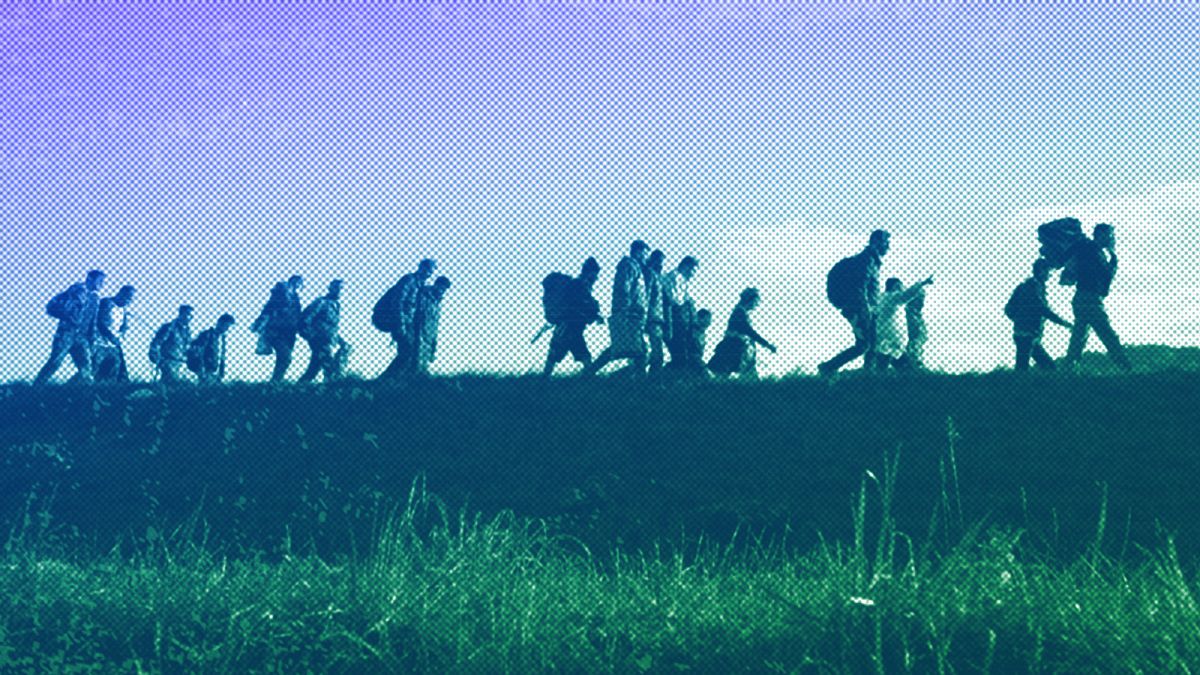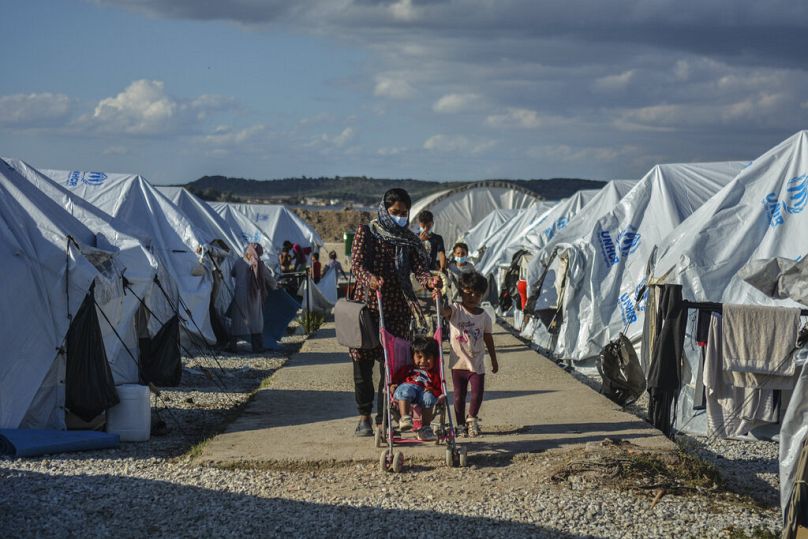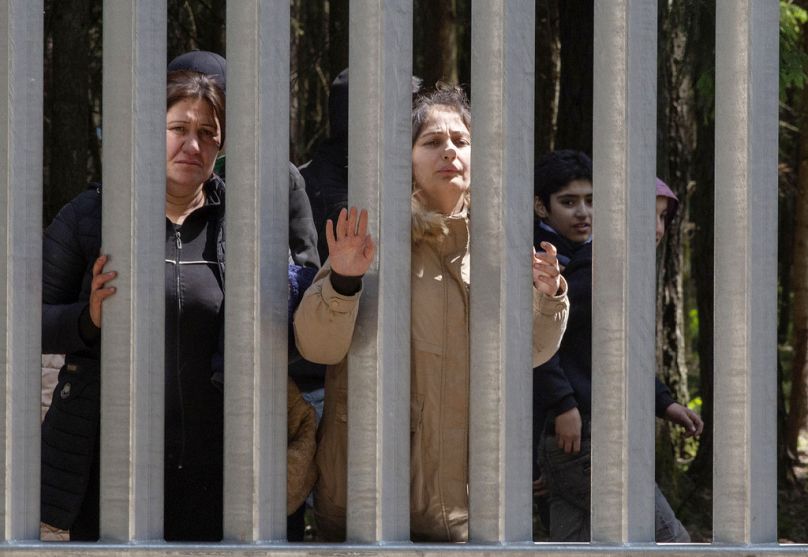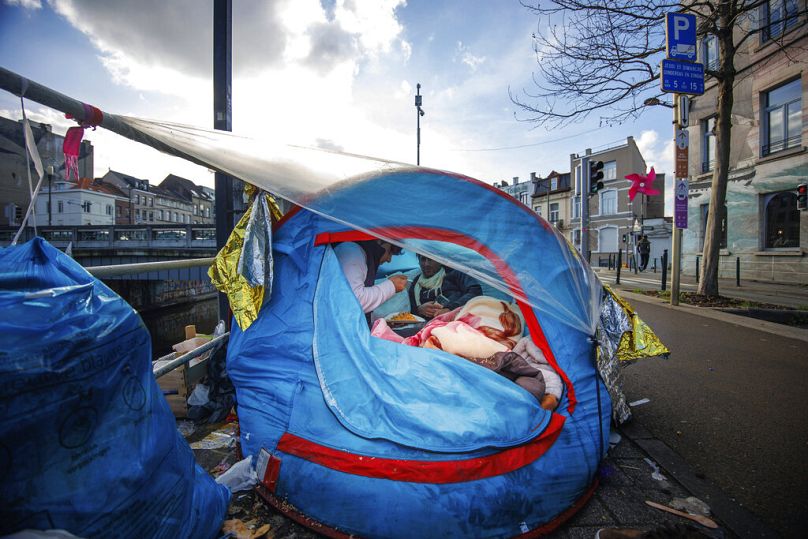We demand solidarity instead of Fortress Europe, prioritising the needs of asylum-seekers, and sharing responsibility among member states, MEP Cornelia Ernst writes.
Coming less than a week before the 75th anniversary of the Universal Declaration of Human Rights, the New EU Pact on Migration and Asylum will make history — by stripping away the individual right to asylum.
Born from the horrors of World War II, the right to asylum is enshrined in EU law, yet today European leaders are committed to tearing it apart, raising serious concerns about the overall health of European democracy and the rule of law.
Whether it’s done at tomorrow’s “jumbo trilogue”, a full day of negotiations between the European Parliament, the European Commission and the European Council, or in the following weeks, it seems like there is a growing political effort from the centre-left to the extreme right to get a deal on migration by the end of the year.
The Migration and Asylum Pact is being hailed by the European Commission as an ‘historic’ agreement — unfortunately for all the wrong reasons.
Dublin on steroids
To give the new pact its due, it has been extremely impressive in one regard: it has managed to make an already bad situation worse by an order of magnitude.
Europe’s current asylum processes fail both asylum seekers and member states, but the new pact will not make life any easier for either party. Despite claims to the contrary, the pact is a million miles away from a solidarity-based approach — if anything, it is the Dublin system on steroids.
The proposal heightens the responsibility of border states and will only lead to mass detention at hotspots on an even greater scale. Far from "no more Morias", we will see more inhumane camps within member states as well as across the external borders of the EU.
In practice, this means the only winners are the xenophobic right-wing and "security" companies that build fences, drones, helicopters, and biometric systems. Restriction of safe and legal migration routes drives people to take more dangerous, irregular routes.
The central Mediterranean is already the most dangerous sea crossing in the world, and the absence of safe and legal routes, coupled with scaled-up cooperation with "safe" third countries under the new pact will only push more people fleeing war, poverty, or persecution to attempt this perilous journey.
A naked attempt to speed up deportations
At the core of this new pact is the "safe third country" principle, which the pact will massively expand.
Countries that make a single, unverifiable, and unenforceable agreement to offer fair and regular treatment of people and the right to remain there can be classified as ‘safe’ under the new pact, regardless of their respect for human rights and existing persecution of their own nationals.
The European Commission has dressed this up as ensuring "clear, fair, and faster border procedures" — but the reality is a naked attempt to speed up deportations directly from the EU’s external border.
If the European Parliament accepts the Council position, the individual regular asylum process will be replaced by the new "fast-track" procedure.
This will result in mass detention at the border for a large number of cases, including children, and likely deportations to a third country to which they might never have even been.
At every level, the new pact does not address the systematic violations of fundamental human rights at the borders of the EU, it legalises them. And stripping groups of people of universal human rights sets a chilling precedent for the future of democracy in the EU.
It doesn’t have to be this way
Since the beginning of negotiations on the pact, the Left has consistently advocated that the rights of those seeking protection in Europe be at the heart of the negotiations. Every asylum seeker has the right to a detailed, fair, individual examination of their asylum application.
To prevent pushbacks, we propose the establishment of an independent monitoring mechanism of fundamental rights at the EU’s external borders, including border surveillance, and also offer an effective channel for complaints and legal protection.
We demand solidarity instead of Fortress Europe. A genuine solidarity-based approach entails prioritising the needs of asylum-seekers, empowering regional authorities who want to accept more people, sharing responsibility among member states, and ensuring the right of applicants to be reunified with their family members already residing in the EU.
Solidarity also means the end of inhumane camps like Moria, on the Greek island of Lesbos, a stain on everything the European Union claims to stand for.
Erosion of universal human rights? Not in our name
More than 28,000 people have died attempting to cross the central Mediterranean in the last decade. Rather than pushing more people to risk their lives in dangerous crossings, we’ve been calling for legal and safe pathways.
The externalisation of migration policy must stop. We call for an immediate end to the EU-Turkey deal and cooperation with the so-called Libyan coastguard and authoritarian regimes like Tunisia.
Instead of increasing the budget for border surveillance and Frontex, we propose dissolving the agency and using its gigantic budget to set up a comprehensive European search and rescue service.
We are not alone in the fight for a solidarity-based and humane European asylum and migration policy. We will continue to stand with and fight alongside the civil society organisations and all the people who defend the right to asylum. This erosion of universal human rights will not happen in our name.
Cornelia Ernst (Die Linke/The Left) is a Member of the European Parliament and member of the European Parliament’s Committee on Civil Liberties, Justice and Home Affairs (LIBE).
At Euronews, we believe all views matter. Contact us at view@euronews.com to send pitches or submissions and be part of the conversation.



